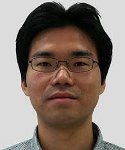TAIC PART 2018
CONCLUDED
The 13th Workshop on Testing: Academia-Industry Collaboration, Practice and Research Techniques
April, 2018, Västerås, Sweden
Co-located with: ICST 2018
CONCLUDED
The 13th Workshop on Testing: Academia-Industry Collaboration, Practice and Research Techniques
April, 2018, Västerås, Sweden
Co-located with: ICST 2018
TAIC PART 2018 is now concluded and we had an amazing workshop attended by roughly 30 people that got to experience 6 excellent full papers and 2 short papers. In addition, we were treated to two industrial keynotes. The first by Emily Bache from Praqma who talked about her experiences from industrial practice with agile software development, testing in this context and especially "Approval testing". The second keynote was held by Jonas Hermansson from Inceptive who, and was probably the only one all week, held his presentation on the whiteboard where he presented how he and his colleagues work with requirements, development and testing.
We, the organisers, are happy with the results and hope to see you all 2019 in Xi'an China! Finally, we want to thank the winners of the, by Inceptive sponsored, best paper award!

In order of appearance (left to right, photo by Takashi Kitamura):
Emil Alégroth, general chair for TAIC Part
Ralf Pannemans, industrial author of the paper
Jonas Hermansson, CEO of Inceptive (Sponsor)
Thomas Bach, academic author of the paper
Submit your paper HERE!
Software testing is the perfect candidate among software engineering activities for the union of academic and industrial minds. The workshop Testing: Academia-Industry Collaboration, Practice and Research Techniques (TAIC PART) is a unique event that provides a stimulating platform to facilitate collaboration between industry and academia on challenging and exciting problems of real-world software testing. The workshop brings together practitioners and academic researchers in a friendly environment with the goal to transfer knowledge, exchange experiences, and enrich the understanding of the opportunities and challenges in the collaboration between the two sides.
TAIC PART 2018 is the thirteenth edition in a series of highly successful events. Take a look at previous events and discover what happened at TAIC PART in the past years by following the links below. This year, TAIC PART will be co-located with the IEEE International Conference on Software Testing, Verification and Validation (ICST 2018) in Västerås, Sweden. Please consider submitting a paper and/or registering to attend TAIC PART so that you can be part of a premier software testing conference.
|
TAIC PART 2018 is kindly supported by |
|
Inceptive Stockholm kindly sponsors the Best Paper Award, an iPad 32GB. |
Workshop date & location:
April, 2018, Västerås, Sweden (at Aros Congress Center)
co-located with ICST 2018 (April 9 - 13, 2018)
Submit your paper HERE!
Download the Call for Papers as PDF / PDF (Swedish) / Text
TAIC PART is a workshop that aims to forge collaboration between industry and academia on the challenging and exciting problem of real-world software testing. It is promoted by representatives of both industry and academia, bringing together industrial software engineers and testers with researchers working on theory and practice of software testing. TAIC PART expects submissions relevant to practice and research like evaluation of testing approaches by means of industrial surveys, case studies or experiments, experience reports on the application of scientific approaches in industry, or ideas on how to facilitate the knowledge transfer between industry and academia.
The goals of TAIC PART range from the articulation of research questions in the field of software testing and analysis to practical challenges faced in industry. The common theme is the discussion and advancement of approaches and methods for sustainable collaboration between academia and industry in software testing.
TAIC PART 2018 invites papers on software testing, verification and validation of the following types:
We invite submissions of the following types:
Regular papers will be evaluated with respect to the real-world significance of the described testing experience as well as their ability to forge partnerships and ultimately yield successful solutions. Fast Abstract papers are short papers that describe late breaking results, works in progress or real-world challenges and will be evaluated according to their ability to generate discussion and suggest interesting areas for future research.
Authors should submit a PDF version of their paper through the TAIC PART 2018 paper submission site: TBD . Papers must be written in English and conform to the two-column IEEE template for conference proceedings. All papers will undergo a rigorous review by at least three members of the program committee. All accepted papers will be part of the ICST joint workshop proceedings published in the IEEE Digital Library.
Writing an academic research paper can be a daunting task, especially if one has never written a paper before. Therefore we have created a document to guide practitioners that want to contribute to the workshop. The document can be accessed on the below URL:
The document presents a set of headings that can be used to structure the paper as well as guidelines what to write in each heading and how to achieve the required IEEE layout of the paper.
Program Co-Chair

Nat. Inst. of Advanced Industrial Science and Technology (AIST), Japan